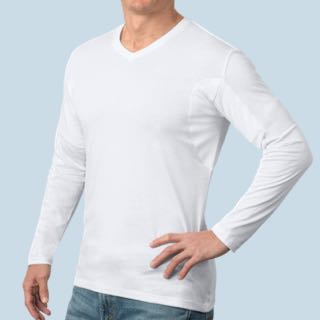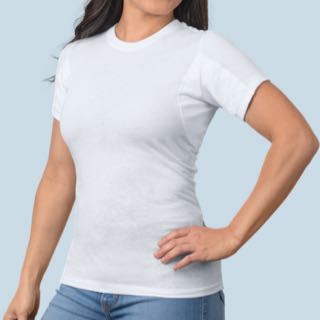What Is Hyperhidrosis: Causes, Symptoms & Treatment
Moist palms during a handshake, damp patches blooming through shirts, shoes that slip because your feet won’t stay dry.
If these sound familiar, you may be among the roughly 3% of Americans living with hyperhidrosis, excessive sweating that can turn everyday moments into constant worry.
But there’s good news: safe, effective treatments, ranging from simple lifestyle tweaks to dermatologist-backed therapies, can bring lasting relief. This guide breaks down everything you need to know.
What Is Hyperhidrosis
Clinically, hyperhidrosis is a chronic disorder in which the body produces far more sweat than necessary to keep a stable temperature. Unlike normal perspiration, the excess moisture can appear in a cool room, at rest, or without any clear reason.
In most cases, the sweat glands themselves are perfectly healthy. The issue lies in the nerves that control them, sending persistent “go” signals that trigger excessive sweating. Whether it affects a single zone like the palms, soles, underarms, or face, or several areas at once, hyperhidrosis can soak through clothing, destroy self-confidence, and disrupt daily life if left untreated.
Types of Hyperhidrosis
Clinicians group excessive sweating into three main categories based on its root cause and the body areas involved.
Primary Hyperhidrosis
Primary hyperhidrosis (often called primary focal hyperhidrosis) starts in childhood or the teen years and tends to run in families. It targets predictable “hot spots” such as the underarms, palms, soles, or face. The sweat glands themselves are perfectly normal, but the problem lies in the nerves that control them, which keep sending “sweat now” signals even when you’re cool and calm.
Types of primary hyperhidrosis include:
- Underarms: Axillary hyperhidrosis
- Hands: Palmar hyperhidrosis
- Feet: Plantar hyperhidrosis
- Head/Face: Cranial hyperhidrosis
- Groin: Inguinal hyperhidrosis
- Torso: Truncal hyperhidrosis
- Compensatory Hyperhidrosis (CS): Also known as rebound hyperhidrosis or reflex hyperhidrosis, CS is the most common side effect of endoscopic thoracic sympathectomy (ETS) surgery, which is used to treat severe hyperhidrosis.
Secondary Hyperhidrosis
Secondary hyperhidrosis is excessive sweating caused by an underlying medical condition or medication. It can appear suddenly at any age, often as all-over (generalized) sweating that persists during sleep. Common triggers include endocrine disorders (hyperthyroidism, diabetes), menopausal hot flashes, infections, certain cancers, and a long list of drugs, including antidepressants and blood-pressure medicines. Treating or removing the underlying cause typically reduces the sweating.
Generalized Hyperhidrosis
When sweating soaks the entire body rather than isolated zones, it’s called generalized hyperhidrosis. This pattern is almost always linked to an underlying systemic issue, such as a fever, hormone imbalance, low blood sugar, serious infection, or neurologic disorder. While heat, humidity, and strenuous exercise normally trigger sweating, people with hyperhidrosis may experience an exaggerated response in these conditions.
Signs and Symptoms of Hyperhidrosis
Hyperhidrosis shows up as sweat that’s out of proportion to temperature, activity, or emotion. While everyone sweats, people with the disorder often notice moisture appearing “for no reason” and pooling faster than it can evaporate. Typical signs include:
- Visible beads or drips on the skin, even in air-conditioned rooms.
- Clothing that becomes soaked or discolored, sometimes within minutes of putting it on.
- Bilateral, symmetrical sweating on classic focal sites: underarms, palms, soles, face, or scalp.
- Episodes lasting 6 months or longer, beginning before age 25, often with a family history.
- No sweating during sleep—a clue that points to primary rather than secondary hyperhidrosis.
- Moisture-related skin problems such as itching, maceration, peeling soles, or recurrent fungal infections.
- Social or functional interference, such as difficulty shaking hands, gripping tools, using touchscreens, or feeling confident in public.
Beyond the physical symptoms, studies show that people with hyperhidrosis report anxiety, frequent clothing changes, and work limitations at levels similar to those living with chronic skin diseases like psoriasis. If excessive sweating matches several of these patterns, it’s worth seeking a medical evaluation.
Diagnosis and Medical Evaluation
A clear diagnosis guides the right treatment, so expect your clinician to work through a step-by-step process rather than rely on guesswork.
- Detailed history and focused physical exam. Your dermatologist asks when the sweating started, which body zones are involved, and whether symptoms wake you at night. They also check for telltale patterns of hyperhidrosis, such as bilateral, symmetrical moisture in the underarms, palms, soles, or face.
- Severity scoring. Most clinics use the four-point Hyperhidrosis Disease Severity Scale (HDSS). A score of 3 or 4—meaning sweating “barely tolerable” or “intolerable”—confirms moderate-to-severe disease and justifies medical therapy.
- Objective sweat tests. Some clinics use the starch-iodine (Minor) test to map active glands or gravimetric testing to measure output. These are usually reserved for special cases, research, or insurance documentation. Advanced tests like QSART or thermoregulatory sweat testing may be ordered if a systemic or neurologic cause is suspected.
- Rule-out labs for secondary causes. If sweating occurs during sleep, began suddenly, or covers the whole body, the doctor orders targeted labs—thyroid panel, fasting glucose, complete blood count—or imaging when infection, malignancy, or endocrine disorders are on the table.
- Documentation for insurance approval. Insurers often require HDSS scores, test results, and prior-treatment history before they’ll cover prescription wipes, iontophoresis devices, or Botox injections. Your physician compiles this paperwork at the initial visit to prevent reimbursement delays.
With this data in hand, you and your dermatologist can match the most effective therapy to the exact type and severity of your sweating.
Hyperhidrosis Treatment Options
From sweat-proof clothing to outpatient procedures, you and your dermatologist can mix and match therapies until you land on lasting relief. Below, we’ll go from the least invasive options to the most aggressive, so you can weigh comfort, cost, and downtime.
Sweat Proof Undershirt
While not a medical treatment, the Thompson Tee is a practical tool that many people with axillary (underarm) hyperhidrosis use to manage daily challenges. This patented undershirt features ultra-thin Hydro-Shield® technology, a built-in barrier that absorbs underarm sweat, traps odor, and releases moisture as vapor. Unlike sweat guards or chemical treatments, it relies on layered fabric engineering — no batteries, chemicals, or prescriptions required.
Thompson Tees are designed to prevent visible wet spots and protect outer clothing, helping people avoid frequent wardrobe changes and the embarrassment of noticeable stains. Many users report greater confidence during work, social events, and public speaking. The undershirts come in various styles and colors for men and women, blending seamlessly into daily wear.
Although the Thompson Tee doesn't reduce sweat production or treat the underlying cause of hyperhidrosis, it offers a non-invasive, wearable way to stay dry and comfortable. It can be used alone or alongside medical treatments.
Lifestyle Modifications
Small habit changes often cut sweat volume by 10–30 percent:
- Choose breathable fabrics like cotton, bamboo, or merino; loose weaves let moisture escape.
- Cool your core with fans, desk chillers, or ice-water bottles pressed to pulse points.
- Limit triggers like spicy food, caffeine, alcohol, and nicotine that spike sympathetic output.
- Practice stress controls such as box breathing or guided meditation; anxiety amplifies sympathetic firing.
- Rotate footwear and use moisture-wicking socks to curb plantar sweat and fungus.
These tactics rarely solve severe cases by themselves, but they lay the foundation for any medical therapy.
Topical Treatments
- Clinical-strength antiperspirants (15–20% aluminum chloride) block ducts and work best when applied overnight.
- Prescription glycopyrronium cloths (2.4 %) offer ancillary control, though they may cause dry mouth and blurry vision.
- Aluminum-free acid wipes (20% aluminum sesquichlorohydrate) cater to sensitive skin.
Dermatologists recommend trying a topical for at least two weeks before judging efficacy.
Read more: 10 Topical Treatments for Hyperhidrosis
Oral Medications
When focal therapies fail, physicians may prescribe pills such as glycopyrrolate or oxybutynin. These drugs block the acetylcholine signal that turns glands on; typical doses range from 1–3 mg two to three times daily. Dry mouth, blurred vision, and constipation limit long-term use, so doctors usually reserve pills for social events, presentations, or other short-term needs.
Read more: Your Hyperhidrosis Medication Guide
Botulinum Toxin Injections
A series of 50–100 micro-injections of botulinum toxin type A paralyzes the nerve endings that trigger sweat. Underarm results last four to six months; palms and soles average three to four months, but hurt more during injection. Most insurance plans cover the procedure after antiperspirants fail, although copays can run $100–$300 per session.
Read more: Botox for Armpit Sweat: Is It Right for You?
Iontophoresis
An at-home iontophoresis device passes a low-voltage current through shallow pans of tap water while hands or feet soak. The mild electrical field temporarily disrupts sweat-duct output; three 20-minute sessions a week can cut palmar or plantar sweat by up to 80 percent. Maintenance goes to once weekly once dryness sets in.
Surgical Interventions
When gentler measures no longer suffice, permanent or near-permanent relief can be achieved through surgical procedures that disable sweat glands (or the nerves that control them).
- miraDry® uses microwave energy to permanently destroy axillary sweat and odor glands.
- Clamshell excision or curettage removes underarm glands through small incisions; downtime is about one week.
- Endoscopic thoracic sympathectomy (ETS) severs or clips the sympathetic chain for palmar sweating but carries a 50–80 percent risk of compensatory trunk sweating, so surgeons reserve it for intractable cases.
Only a fellowship-trained surgeon should discuss these options in depth.
When to Seek Help
Excessive sweating isn’t “just a nuisance” when it starts to reshape your day. Reach out to a doctor if you notice any of these red flags:
- Wardrobe or routine changes: carrying spare shirts, choosing only dark colors, or avoiding handshakes.
- Work, sport, or tech interference: slipping on tools, losing grip on a yoga mat, or failing phone biometrics.
- Skin complications: rashes, odor, or recurrent fungal infections where sweat pools.
- Emotional fallout: anxiety about sweat stains, skipped social plans, or a drop in self-confidence.
A doctor's evaluation matters because hyperhidrosis can mimic or mask other medical issues. Dermatologists use standardized severity scales and objective sweat tests to confirm the diagnosis, rule out thyroid or metabolic disease, and document the results insurers need to approve advanced therapies. Early treatment also prevents the itch–sweat–infection cycle that often develops when moisture stays trapped against skin.
Frequently Asked Questions
Can hyperhidrosis be cured?
There’s no universal “off switch.” Lifestyle tactics, prescription wipes, anticholinergic pills, Botox®, iontophoresis, and microwave thermolysis can keep sweating at bay for months or years, while endoscopic thoracic sympathectomy) offers the closest thing to a permanent fix—but at the cost of possible compensatory sweating. Most dermatologists, therefore, frame hyperhidrosis as a manageable, not curable, condition.
Is hyperhidrosis hereditary?
Yes, primary hyperhidrosis follows an autosomal-dominant pattern: if one parent sweats excessively, each child has roughly a 50 % chance of inheriting the trait. A 2022 twin study of 5,000 subjects found concordance rates above 80 % for identical twins, underscoring the strong genetic component.
Is hyperhidrosis a serious condition?
Medically, the disorder rarely endangers life or vital organs, but its quality-of-life impact rivals chronic skin diseases like psoriasis. Research links uncontrolled sweating to social anxiety, missed workdays, and skin infections where moisture stays trapped. Seeking treatment early prevents this domino effect.
How common is hyperhidrosis?
A 2023 U.S. prevalence review places the rate between 2.8 % and 4.8 %, translating to roughly 10–15 million Americans. Global surveys report similar numbers, with a slight tilt toward female and Asian populations. Many cases go unreported, so dermatologists believe the true figure may be higher.
Are there any natural remedies for hyperhidrosis?
Evidence remains limited, but some people find modest relief from:
- Sage-leaf tea (oral or foot soak) for its mild anticholinergic effect.
- Black-tea soaks containing tannic acid, which can constrict sweat ducts.
- Apple-cider-vinegar wipes to lower skin pH and inhibit bacteria.
- Mindfulness or paced-breathing drills that dampen sympathetic-nerve firing.
Dermatologists consider these safe to try, as long as you discontinue them if irritation develops and continue any prescribed treatments.
Read more: How to Stop Sweating Naturally: 16 Remedies + Tips
Manage Hyperhidrosis With a Thompson Tee
When medical fixes feel daunting—or you just need instant confidence—reach for a Thompson Tee. Explore the full men’s or women’s collection and try one risk-free for 30 days.
Slip one on before that big meeting or first date, and keep excessive sweat where it belongs: out of sight and out of mind.


